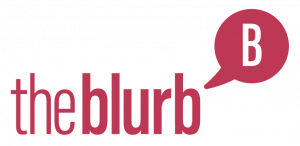As a growth marketing agency owner, everything for me is results driven. I saw a post the other day about how prioritising efficiency over quality gets more results.
Yet, as a marketer, quality is key when creating content for clients. Make spelling mistakes, get promotional codes wrong, or take shortcuts with your design and it just doesn’t look professional.
I work hard to come up with tools that will help assist my productivity for clients, whilst maintaining quality. And I like to think I have the right balance.
After all, working with small businesses means that their budget has to work hard for them.
Here are my top marketing tools that have really helped me on my journey to where I am currently, and I’m delighted to say that my client basis is growing rapidly – mostly by recommendations on the work I’ve done.
- Grammarly
- Dux-Soup
- Moz
- Ubersuggest
Grammarly
Because I like to work fast, I make mistakes with my writing. I don’t always have the time to come back and proofread my content. Particularly long blogs where I can skip errors due to my own speed reading. Don’t get me wrong, I’m a stickler for spelling and grammar. I just don’t always see them in my own work. My brain skips repeated words and turns them into single words.
Fortunately, we have Grammarly. I’ve recently just discovered it, and it’s marvellous. It tells you where you should consider adding and removing commas right through to offering meta descriptions for your blog articles.
Where it’s really helped me is that I no longer need a proofreader for my work, I can run it through Grammarly in just minutes at a fraction of the cost. It saves me time, saves my client money and so all round it’s a win-win.
Dux-Soup
If your audience is on LinkedIn, then you really should try Dux-Soup. It automates actions including profile visits, connection requests, InMails, and messages. You can set up a sequence of actions in a campaign too.
How to send automated connection requests with Dux-Soup.
All you need to do is find your list of target prospects on LinkedIn and set Dux-Soup to work. You can let it do your manual leg work, saving you huge amounts of time.

Watch your pipeline grow as your leads filter through the lead-generation process, driving responses into your LinkedIn inbox. It’s a dream. At £44/month it’s well worth the investment (think of what an employee would cost to do the same).
Moz
Moz is an SEO (search engine optimisation) tool. It allows you to track how well your website is performing. In order to improve your rankings on search engines like Google, you’ll want to improve your DA (domain authority).
This is done by producing regular, high-quality content, and gaining backlinks to your site from other domains with a high DA.

Moz gives you access to free marketing tools to allow you to check your DA amongst other things. It also tells you how many backlinks your site has, and which keywords you rank for.
If you’re not a full-time SEO expert then this is a great tool to use to get started with SEO.
Ubersuggest
Another SEO tool, Ubersuggest gives you some really nice information on where you rank for keywords and also allows you to check where your competitors rank. This can give you some good insight into which keywords you want to optimise in your content strategy.

You can also access backlinks to competitor sites, allowing you to build your backlink outreach strategy.

It will take a bit of time, but an ongoing content and backlink strategy will pay dividends.
Conclusion
There are lots of excellent, and free, marketing tools available. In my marketing, I use many more but these can help small businesses instantly improve visibility.
If you need any help or have any questions email us at info@theblurb.co.uk and we’d be happy to help.

